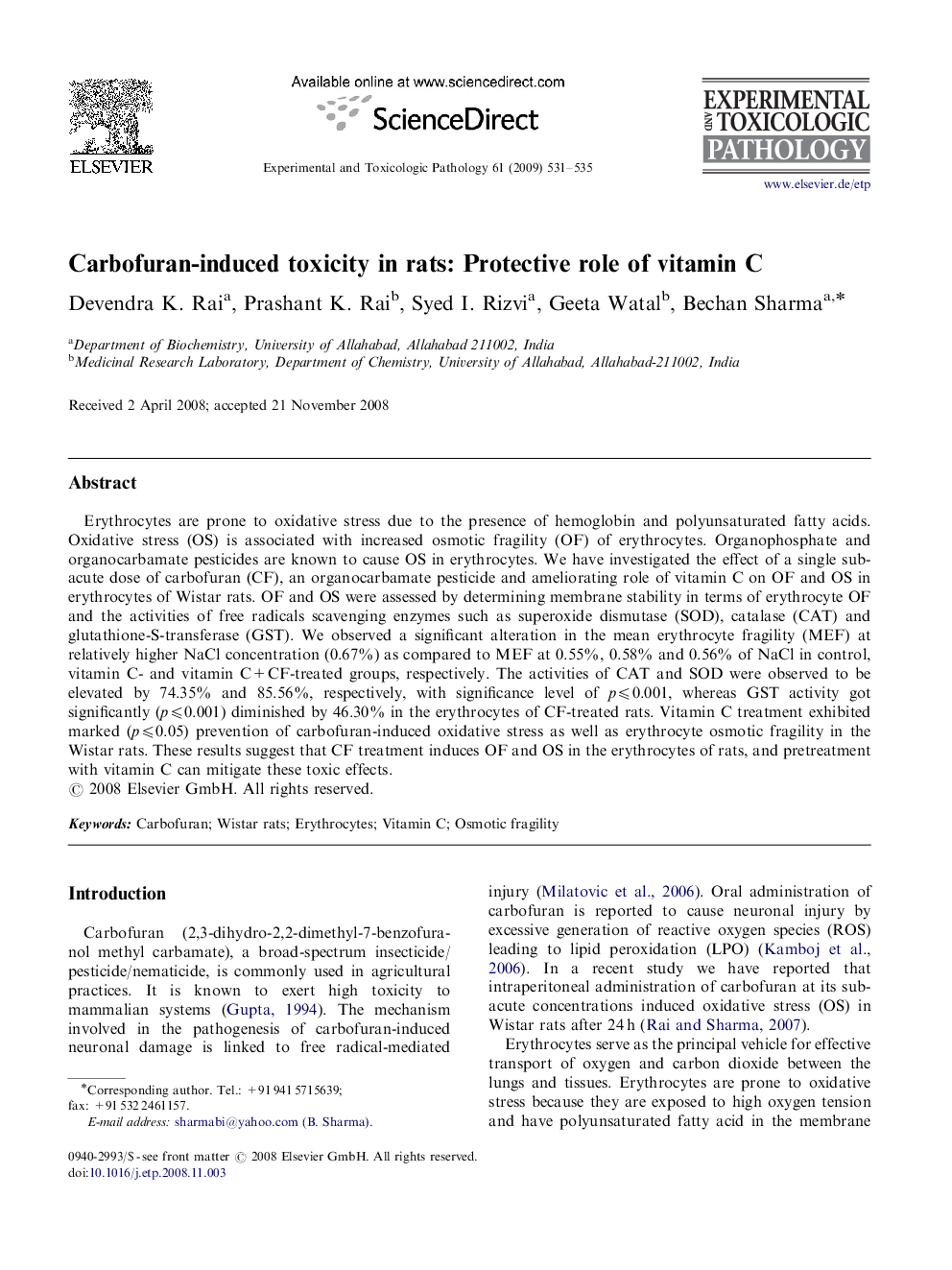| Article ID | Journal | Published Year | Pages | File Type |
|---|---|---|---|---|
| 2499586 | Experimental and Toxicologic Pathology | 2009 | 5 Pages |
Erythrocytes are prone to oxidative stress due to the presence of hemoglobin and polyunsaturated fatty acids. Oxidative stress (OS) is associated with increased osmotic fragility (OF) of erythrocytes. Organophosphate and organocarbamate pesticides are known to cause OS in erythrocytes. We have investigated the effect of a single sub-acute dose of carbofuran (CF), an organocarbamate pesticide and ameliorating role of vitamin C on OF and OS in erythrocytes of Wistar rats. OF and OS were assessed by determining membrane stability in terms of erythrocyte OF and the activities of free radicals scavenging enzymes such as superoxide dismutase (SOD), catalase (CAT) and glutathione-S-transferase (GST). We observed a significant alteration in the mean erythrocyte fragility (MEF) at relatively higher NaCl concentration (0.67%) as compared to MEF at 0.55%, 0.58% and 0.56% of NaCl in control, vitamin C- and vitamin C+CF-treated groups, respectively. The activities of CAT and SOD were observed to be elevated by 74.35% and 85.56%, respectively, with significance level of p⩽0.001, whereas GST activity got significantly (p⩽0.001) diminished by 46.30% in the erythrocytes of CF-treated rats. Vitamin C treatment exhibited marked (p⩽0.05) prevention of carbofuran-induced oxidative stress as well as erythrocyte osmotic fragility in the Wistar rats. These results suggest that CF treatment induces OF and OS in the erythrocytes of rats, and pretreatment with vitamin C can mitigate these toxic effects.
